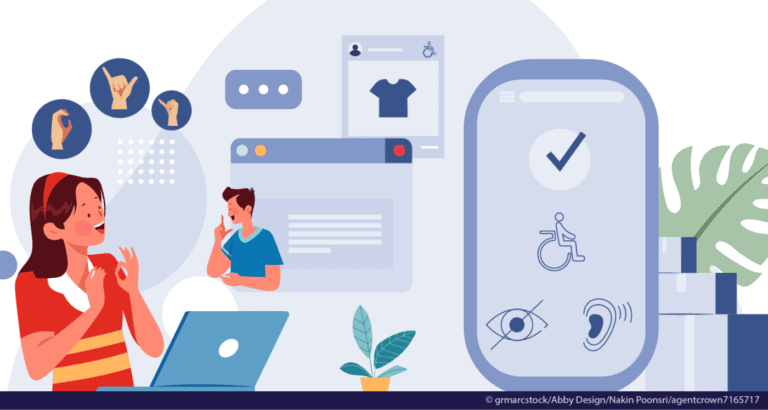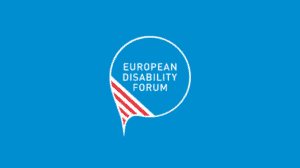On 12th of October 2021, the EUD attended a webinar co-hosted by the European Disability Forum (EDF) and Apple, on the benefits of accessible technology for students with disabilities. It aimed to present the accessible features that Apple has introduced and provide a discussion on how that technology is helping these students thrive.
The opening remarks were made by Sarah Hellinger, Apple’s Senior Director of Global Accessibility and Policy Initiatives. She stated that Apple believes ‘technology can play a powerful role in helping students be more productive, creative, collaborative, motivated, empowered and create independence to foster dignity and at the end of the day live out their dreams’. Furthermore, she outlined Apple’s views on accessibility and disability, saying that both are on a spectrum and that technology varies depending on the student’s needs and their disability. To make the technology more compatible with disabled learners’ requirements, Apple has worked with several deaf schools, as well as schools for blind and visually impaired pupils.
The panellists were invited to discuss their experiences teaching children with disabilities through assistive technology with Apple products and apps such Pages, Keynote and Numbers. David Niemeijer, Founder and CEO of Assistive Ware argued that there had been considerable advances in developing assistive technologies and putting accessible features into mainstream products. He ascertained that the barriers facing inclusive education lie outside of technology, and include things such as:
- A lack of belief from teachers/educators in the potential of students with disabilities;
- A lack of funding, as the technology is available but schools often lack the budget to purchase it and make it available for all students;
- A lack of knowledge about the accessibility features or the availability of certain assistive technologies; and
- A lack of collaboration between the schools and parents, with schools saying that parents often are not taking on shared responsibility to ensure that the students have access to the technology they need, and the parents saying that the schools do not train them in the technology that their children are supposed to use or allow the child to bring it home with them.
At this event, it was exciting to see how these evolving assistive technologies affect the lives of students with disabilities and how technology is making education more inclusive and empowering. Having technology companies understand the needs of students with disabilities will improve their access to education and ensure that no one is left behind.













